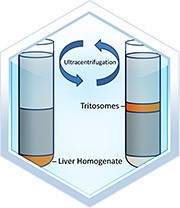Now that the novel coronavirus (2019-nCoV or COVID-19) outbreak has been declared a “public health emergency of international concern” by the WHO, scientists worldwide are being pressured to develop a treatment. The first step of research projects focussing on this virus is to identify robust anti-COVID antibodies.
Some antibodies developed for the 2002 SARS strain present opportunities for immediate deployment while others have been recently made available to the research community. In this post, you’ll find a selection of the most sought after anti-COVID research antibodies.
Anti-SARS-CoV-2 Spike (S) Protein
The Rabbit Anti-SARS-CoV-2 Spike (S) Protein Polyclonal Antibody (cat. nr 128-10168-1) was developed by immunizing rabbits with synthetic peptides of the putative SARS-CoV-2 Spike glycoprotein (Genbank accession no. QHD43416). This antibody is for use in ELISA, IFA and Western blot.

(cat. nr 128-10168-1) : 1 µg/ml; Lane M: Protein Marker; Lane 1: Spike S2 (cat. nr 230-20408) 12 µl; Lane 2: 293T cell lysate, 12 µl
Anti-SARS-CoV Membrane (M) Protein Antibody
The Anti-SARS-CoV Membrane (M) Protein (RABBIT) Polyclonal Antibody (cat. nr 100-401-A55) is validated for IF Microscopy (Dilution 1:1,000), Western Blot: Dilution (1:1,000), Immuno-Precipitation (Dilution 1:60), and
Immunoelectron Microscopy (Dilution 1:200). This antibody was prepared from whole rabbit serum produced by repeated immunizations with a BSA-coupled synthetic peptide corresponding to the C-terminus (amino acid residues 204-221) of the SARS Coronavirus Membrane protein.

Anti-SARS Nucleocapsid (N) Protein Antibody
The anti-SARS-CoV Nucleocapsid (N) Protein (RABBIT) Polyclonal Antibody (cat. nr 200-401-A50) is validated for ELISA (Dilution: 1:10,000 – 1:50,000, Western Blot (Dilution 1:2,000 – 1:10,000) and IF Microscopy (Dilution to be optimized by user).
The immunogen has been prepared from whole rabbit serum produced by repeated immunizations with a purified recombinant protein corresponding to full length SARS Coronavirus Nucleocapsid protein. For this, SUMO-Nucleocapsid fusion (LifeSensors) was expressed in E. coli in LB medium and purified using Ni-NTA resin affinity chromatography. After the fusion was cleaved by the SUMO Protease, the SUMO-tag and protease were subtracted from the nucleocapsid using MAC and the nucleocapsid was finally purified using Cation Exchange Chromatography with the Macro-Prep High S resin and size exclusion chromatography.

Anti-SARS-CoV 3CL Protease Antibody
The anti-SARS-CoV 3CL Protease (RABBIT) Polyclonal Antibody (cat. nr 200-401-A51) is compatible with ELISA (Dilution: 1:10,000 – 1:50,000,
Western Blot (Dilution 1:2,000 – 1:10,000) and IF Microscopy (Dilution to be optimized by user). This protein A purified antibody was prepared from whole rabbit serum produced by repeated immunizations with a purified recombinant protein corresponding to full length SUMO:3CL protease fusion as described with the anti-SARS N protein antibody.
>250 specialized antibodies for research applications
For SARS, the ACE2 receptor was identified as a mechanism by which the SARS virus entered cells – and although ACE2 hasn’t been definitively determined as the sole means of entry for the current strain, our antibodies against ACE2 can play a critical part in understanding the mechanism of infection.
The biomedical community is working urgently to develop novel reserch tools (e.g. SARS-CoV:ACE2 binding inhibitor screening assays and small molecules, high throughput viral RNA / DNA isolation from bodily fluids) specific for 2019-nCov. For speed and risk mitigation purposes, institutions should consider novel 2019-nCoV antibody production at more than one facility. This provides for variation in antibody performance and timing, which is critical for the rapid development of antibodies suitable for functional studies like neutralization and receptor identification.
You may also be interested in a broader overview of tebu-bio’s anti-viral antibodies portfolio, including validated pairs for immunoassay development. Just click on the link below to download our brochure.
Please note the products mentioned in this post are available for research use only, by qualified scientists.



